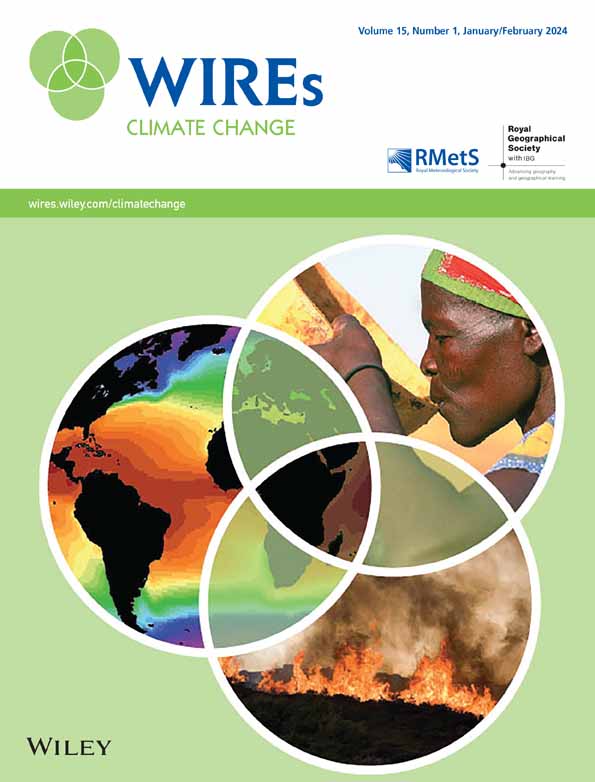气候变化传播分析的计算方法:走向综合和反射的方法
IF 10.3
1区 环境科学与生态学
Q1 ENVIRONMENTAL STUDIES
引用次数: 4
摘要
计算方法,特别是文本作为数据或自然语言处理(NLP)方法,已成为研究气候变化传播这一全球性和大规模现象的流行方法。学者们讨论了这些方法在气候变化沟通中的机遇和挑战,一些支持者和批评者持强硬立场,要么接受计算方法的潜力,要么批判性地质疑其价值。根据更广泛的社会科学辩论的发展,我们旨在通过提出一种反射性的、综合性的气候变化通信计算研究方法,将双方团结在一起:我们反思计算方法的优势(例如,大数据和小数据,实时观测)和劣势(例如,引入经验主义认识论,忽略偏见)。此外,我们还基于理论考虑,就何时以及如何整合(或不整合)这些方法提供了具体和建设性的指导。因此,我们将计算方法理解为分析气候变化通信的不断增加的多样化工具箱的一部分。本文章由计算机程序翻译,如有差异,请以英文原文为准。

Computational methods for the analysis of climate change communication: Towards an integrative and reflexive approach
Computational methods, in particular text‐as‐data or Natural Language Processing (NLP) approaches, have become popular to study climate change communication as a global and large‐scale phenomenon. Scholars have discussed opportunities and challenges of these methods for climate change communication, with some proponents and critics taking strong positions, either embracing the potential of computational methods or critically questioning their value. Mirroring developments in the broader social scientific debate, we aim to bring both sides together by proposing a reflexive, integrative approach for computational research on climate change communication: We reflect on strengths (e.g., making data big and small, nowcasting observations) and weaknesses (e.g., introducing empiricist epistemologies, ignoring biases) of computational approaches. Moreover, we also provide concrete and constructive guidance on when and how to integrate (or not integrate) these methods based on theoretical considerations. We thereby understand computational methods as part of an ever‐increasing, diverse toolbox for analyzing climate change communication.
求助全文
通过发布文献求助,成功后即可免费获取论文全文。
去求助
来源期刊

Wiley Interdisciplinary Reviews: Climate Change
METEOROLOGY & ATMOSPHERIC SCIENCES-
CiteScore
20.00
自引率
2.20%
发文量
58
审稿时长
>12 weeks
期刊介绍:
WIREs Climate Change serves as a distinctive platform for delving into current and emerging knowledge across various disciplines contributing to the understanding of climate change. This includes environmental history, humanities, physical and life sciences, social sciences, engineering, and economics. Developed in association with the Royal Meteorological Society and the Royal Geographical Society (with IBG) in the UK, this publication acts as an encyclopedic reference for climate change scholarship and research, offering a forum to explore diverse perspectives on how climate change is comprehended, analyzed, and contested globally.
 求助内容:
求助内容: 应助结果提醒方式:
应助结果提醒方式:


